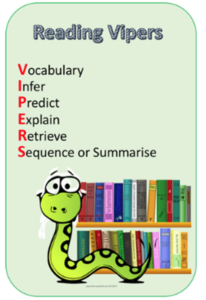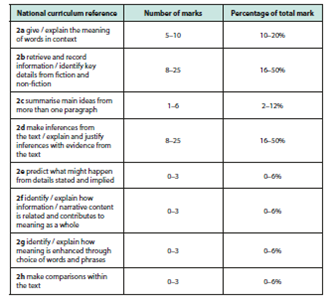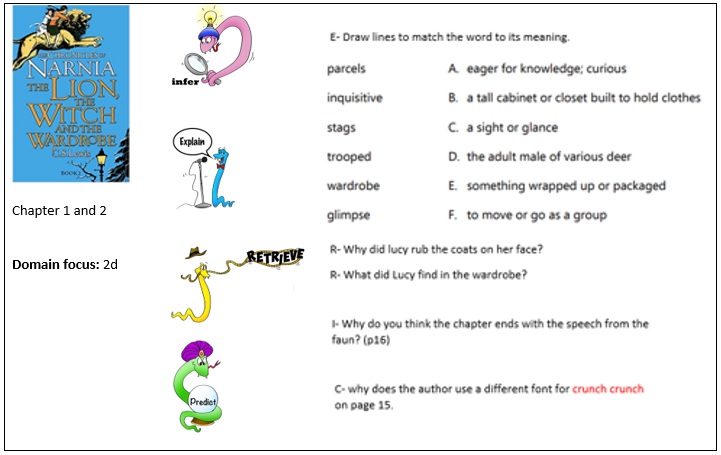English
‘If you are going to get anywhere in life you have to read a lot of books.’
Roald Dahl
‘To learn to read is to light a fire; every syllable that is spelled out is a spark.’
Victor Hugo
‘There are many little ways to enlarge your child’s world. Love of books is the best of all.’
Jacqueline Kennedy
‘Today a reader, tomorrow a leader.’
Margaret Fuller
At Treloweth Primary School, English is at the heart of everything we do and skills in reading and writing are taught across the whole curriculum. Teachers promote a love of the English language through daily reading, writing and Grammar sessions. Regular time is also set aside for story-telling and children across the school are exposed to a wide range of high quality texts.
Students at Treloweth make outstanding progress as a result of engaging lessons, fantastic resources and a range of appropriate intervention groups.
Please see below for more information and to get a flavour for some of the exciting events and activities we have enjoyed.

At Treloweth school we are committed to every child learning to read as quickly as possible. When the basics are embedded and automatic, subsequent learning becomes easier. We have high expectations of ourselves and seek to make rapid progress so that children are confident and fluent readers by the age of 6.
It is our ultimate aim, within the Read Write Inc programme, for the children to be able to learn and apply sound blending skills and segment words in order to be able to create skilled and confident readers. We strive for the children to crack the phonic code as soon as possible so that they change from learning to read, to reading to learn.
Both word recognition and language comprehension are crucial for fluent reading and understanding and access a broad and challenging wider curriculum as they progress through the school. Fluency includes automaticity, comprehension and decoding. We expect children to reread books at the level that is ‘just right’ for them and linked to their RWI level. We also provide books for family reading that further develop vocabulary, comprehension and reading for enjoyment that is more ambitious.
Phonemic awareness begins in the reception year as soon as children enter the school. They learn to read and write letters rapidly and, in our school, we do this through the Read, Write, Inc phonics scheme.
Children in EYFS, Year 1 and Year 2 all take part in high-quality daily phonics sessions; for some of the time, the teacher teaches directly. All children participate by listening and responding, and by practising and applying what they are learning.
Children also practise their reading with decodable books that run alongside the programme.
It is our ambition to foster an early love of reading and the pleasure that books and literature can bring; to transport them into a world of rich discovery and imagination.
We follow a systematic and inclusive approach to Read Write Inc. RWI sessions take place each day for all Reception and Year 1 children with no exceptions. The pace and consistency of the programme is a key element to developing reading skills for all children which is integral to access the rest of the school curriculum.
As children progress through the school, they will learn all 44 sounds and corresponding letter groups. Pupils will learn the initial letter sounds and then matching graphemes as they progress through EYFS and Year 1. They are explicitly taught the skill of oral blending which is vital for the initial stages of early reading. Children will rapidly progress to blending sounds together to help them read words. Children will learn diagraph and trigraph sounds throughout Early Years and KS1.
As children become confident at blending sounds, they are taught the skill of blending mentally and at speed by the use of the RWI system of ‘Fred in your head’. Children will be exposed to ‘alien’ words throughout reception and Year 1.
This consistent and rigorous approach provides our children with the foundations to become enthused readers with a passion for storytelling, literature and vocabulary.
Children also learn to read and spell words that do not conform to regular phonetic patterns (High Frequency Words) and decode both fiction and non-fiction texts through discussion, performance and teacher led activities.
All pupils need to understand the alphabetic code if they are to become accurate readers and spellers. Some pupils with SEND may take a little longer to secure and embed knowledge of the alphabetic code.
From Year 2, once the children are fluent at decoding, they progress onto further developing their comprehension in daily reading lessons. The structure enables children to develop their comprehension, writing, critical thinking, discussion skills and also gain a firm knowledge and understanding of grammar.
VIPERS lessons from Year 2
Children are explicitly taught the skills of reading (outlined in the National Curriculum and the KS1 and KS2 test domains) through the use of VIPERS which were created by Rob Smith (The Literacy Shed). The Reading Vipers can be used by both KS1 and KS2 with a little adaption. The main difference being in the S:
Sequence – KS1
Summarise – KS2
In KS1, ‘Explain’; is not one of the content domains, rather it asks children why they have come to a certain conclusion, to explain their preferences, thoughts and opinions about a text.
In KS2, the ‘’Explain section covers the additional content domains of 2F, 2G and 2H which are not present in KS1 (see below).
Key Stage 1
In Key Stage One when children have completed the RWI programme, children’s reading skills are taught and practised using the VIPERS during whole class reading sessions. Daily class reading is an important part of each day and a high-quality reading text is read and discussed at the end of each day alongside the phonics programme.
| KS1 Content Domain Reference | VIPER |
| 1a draw on knowledge of vocabulary to understand texts | Vocabulary |
| 1b identify/ explain key aspects of fiction and non-fiction, such as characters, events, titles and information. | Retrieve |
| 1c identify and explain the sequences of events in texts | Sequence |
| 1d make inferences from the text | Infer |
| 1e predict what might happen on the basis of what has been read so far | Predict |
Key Stage 2
In Key Stage Two children reading skills are taught and practised using VIPERS during whole class reading sessions.
| KS2 Content Domain Reference | VIPER |
| 2a Give/explain the meaning of words in context | Vocabulary |
| 2b retrieve and record information/ identify key details from fiction and non/fiction | Retrieve |
| 2c summarise main ideas from more than one paragraph | Summarise |
| 2d make inferences from the text/ explain and justify inferences with evidence from the text | Infer |
| 2e predict what might happen from details stated or implied | Predict |
| 2f identify/explain how information/ narrative content is related and contributes to meaning as a whole | Explain |
| 2g identify/explain how meaning is enhanced through choice of words and phrases | Explain |
| 2h make comparisons within a text | Explain |
KS1 and KS2 English Reading Test Framework (2016)
In KS1 we base a lot of reading questions around the ‘Retrieve’ VIPER and balance the other VIPERS appropriately.
Whole Class Reading Lesson Structure
During a typical session the teacher will share what the content domain/s the children will be focusing on for that session. Teachers carefully select up to 4 key vocabulary words they want the children to learn that week. These are taken from the structured vocabulary lists (Tier 2 whole school word progression – Vocabulary Ninja). These will be taught, over learnt and embedded throughout the rest of the week during VIPER sessions and across the wider school day to allow for children to use these words in different contexts. Where appropriate they are applied during writing sessions. These word walls/ banks are displayed in all classrooms and built upon over time.
During these sessions teachers cover fiction texts 3 days a week and non-fiction 2 days a week. To revisit and embed learning the non-fiction texts focus on the previous year groups curriculum learning and are adapted from Literacy Shed + Comprehension materials. For example, the Egyptians are revisited in Y5 to extend, revisit and embed learning in history from Y4. Poetry and videos are used at least once a term to ensure the children are accessing learning from a wide range of genres. Types of text given are appropriate to the age and key stage of the children.
Children read during these sessions in a variety of different ways. They will hear the teacher model fluent reading and then have time to reread the same extract themselves, they may read individually and feedback, work in groups, take turns in pairs or read aloud to their peers. They may participate in choral reading, echo reading or sessions where children read the words of characters and the others the storyline. You may see a number of these different strategies during one session.
Teachers plan 4 key questions each session based on the various content domains. Children are encouraged to orally speak the answer before writing anything down acknowledging their first answer may not always be their best. We use a maximum of 4 question each session to ensure children have time to provide quality answers. At times, children are given sentence stems and vocabulary that is expected to be used within their answer and a range of question types to ensure breadth of experience.
Children are encouraged to provide evidence for their answer based on a text extract or a picture they have seen in the book. Where appropriate children are encouraged to use evidence from a range of different places within the text.
Herts Fluency Strategies
Fluency is essential to successful reading and teaching fluency is a fundamental aspect of our reading strategy. Fluent decoding allows children to understand what they read, connecting the words, sentences and texts. We teach children to read with accuracy and at a speed that allows for comprehension. We re-read and echo read texts to gradually increase the number of words that they can read ‘at a glance’.
Children and staff participate in daily acts of echo and choral reading; staff listen to children and model reading fluency: expression & volume, phrasing, smoothness, & pace (rhythm). Teachers explicitly practise and model the Herts Fluency Reading for Comprehension strategies. They explore relevant vocabulary and phrases and model visualisation.
Children are exposed to a wide range of texts from a number of sources. A combination of high-quality extracts from ‘Literacy Shed +’, 30 recommended texts for the child’s year group and Herts recommended short texts are used. These texts are chosen for their varied sentence structure, stretching vocabulary and promote deeper thinking. In our writing scheme of work, Literacy Tree, texts are chosen by children’s literature experts for their quality and significance. Within the range, there is a wide variety of fiction and non-fiction genres such as historical narrative, mystery, adventure and fantasy.
Recording and Assessment during VIPERS sessions
We encourage children to orally talk through their answers and ensure it is the best they can give before writing anything down. We also acknowledge it is good for children to also be able to formally record an answer. Children can do this in a variety of different ways such as discussing the answer first with peers and/or an adult and then writing their best answer, working individually and then editing their answer accordingly after discussion or orally discussing 1 or 2 of the questions and writing down the others working individually.
During this reading session teachers focus on specific children during the session, this may mean hearing them read individually whilst others are reading independently, in pairs or groups, discussing answers with those children and working one to one or within a group with them during a session whilst the others form an answer independently. Teachers can then assess these children based on NC expectations and how they are performing relating to the specific content domain. This is complimented by our Accelerated Reader quizzes to provide each teacher with a holistic understanding of progress and attainment.
Template Viper:
Intervention strategies include:
- RWI ‘top up’ EYFS and Key Stage 1
- RWI ‘Fresh Start’ Key Stage 2
- ‘Nessy’
- Herts Fluency Reading Project – 8 week programme, 6-8 children from Year 2 – 6
- Accelerated Reader ensures that books are well-matched to children’s reading ability
- Star reading assessments are used to target improvement in teaching





